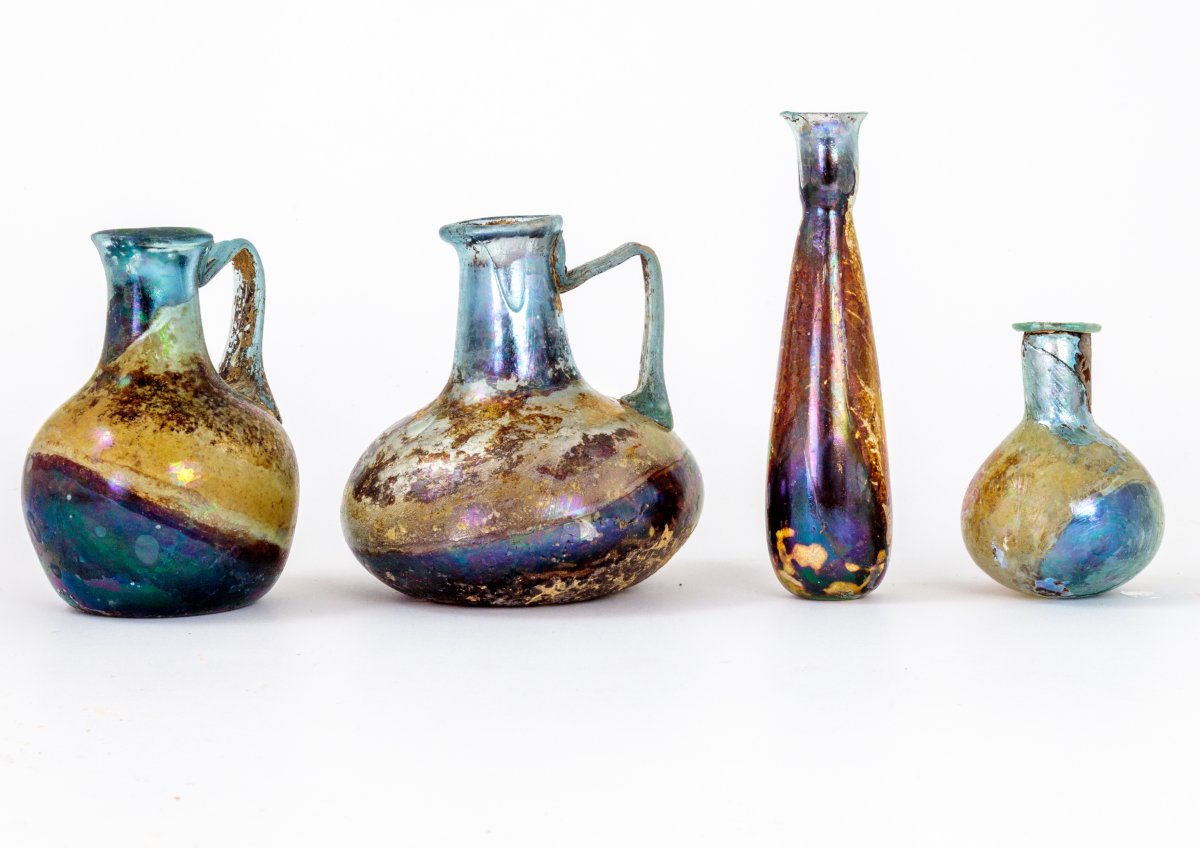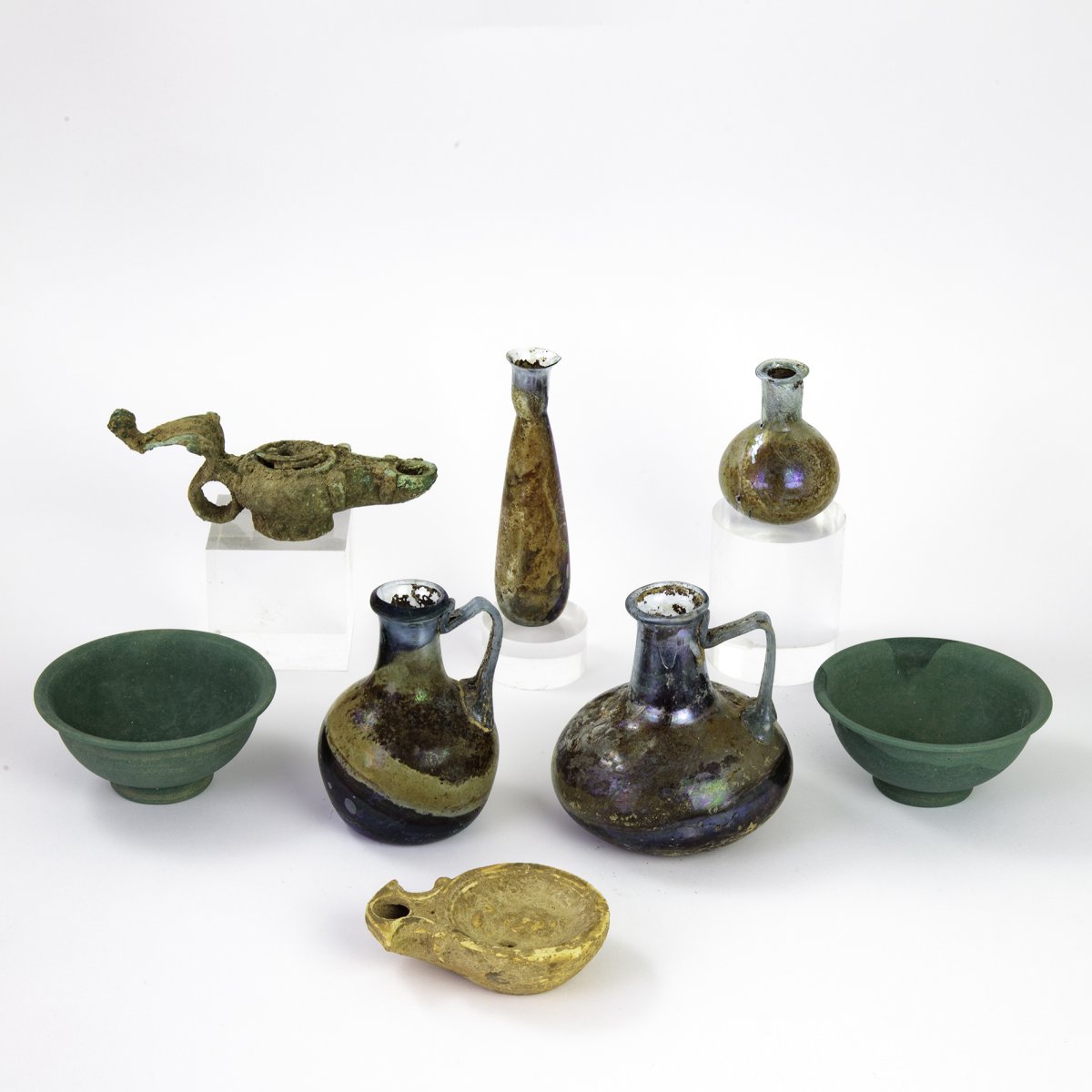Archaeologists have uncovered a remarkably well-preserved collection of ancient glassware from Roman-era tombs in the city of Nîmes, southern France.
The colorful glass vases were unearthed during excavations conducted by the French National Institute for Preventive Archaeological Research (INRAP) at a site in the heart of the city, along a street known as Rue de Beaucaire. The rescue dig is taking place as part of a project to construct social housing.
The latest finds shed light on funerary practices during the Roman period and provide a glimpse into the lives of the people who once lived in the city during antiquity.
Nîmes, located in France's Occitanie region, has a long history having been established as a Roman colony in the 1st century B.C. The settlement, known as Nemausus in antiquity, went on to become a significant regional capital and is sometimes referred to as the "French Rome" thanks to its wealth of remains from the period.

Nemausus was built on the Via Domitia, a major Roman road that connected the Italian Peninsula and the Iberian Peninsula through what is now France. This route was a key element of Roman expansion, promoting trade, cultural exchanges and the movement of troops. The current Rue de Beaucaire follows the path of the ancient road.
One of the most important discoveries of the recent excavations in Nîmes is that of another road close to the Via Domitia, which is thought to have been established around the end of the 2nd century B.C., INRAP site manager Marie Rochette told Newsweek.
This newly uncovered road measures nearly 50 feet wide—almost the same as the Via Domitia, although it has a different orientation. Made up of successive paving stones, the road shows signs of heavy wear from intense traffic, as well as evidence of repair.
The excavations have also shed light on the surrounding areas. Archaeologists uncovered funerary spaces in the area to the north of the newly uncovered road, as well as between it and the Via Domitia.
The funerary remains found in this area date to between the 2nd century B.C. and the 2nd century, according to archaeologists. They include standard burials, as well as cremated human remains, and even several of the funeral pyres used to burn the corpses in these cases.

"We have uncovered burial tombs, but the practice of cremation is largely the majority," Rochette said. "Cremation is carried out on pyres. Then, the burned bones are collected and placed in a grave. The bones are placed in a vase or scattered on the bottom of the excavation. They are often accompanied by objects."
Among the objects the archaeologists found in the burials were strigils (a tool designed to clean the body by scraping off dirt, perspiration, and oil) and lamps, as well as the "very well-preserved" glass vases, not to mention others made from ceramic materials.
Glass and ceramic vases, as well as lamps, were often placed in tombs during this period, an indication of the importance of funerary rites and banquets, according to Rochette. The vases may have contained wine, perfume, or other materials.
Some of them may have been used during feasting rituals to commemorate the burial. But one of the glass containers from the site contains the burned bones of the deceased, indicating that it was an ossuary vase.
Do you have a tip on a science story that Newsweek should be covering? Do you have a question about archaeology? Let us know via science@newsweek.com.
Uncommon Knowledge
Newsweek is committed to challenging conventional wisdom and finding connections in the search for common ground.
Newsweek is committed to challenging conventional wisdom and finding connections in the search for common ground.
About the writer
Aristos is a Newsweek science reporter with the London, U.K., bureau. He reports on science and health topics, including; animal, ... Read more
To read how Newsweek uses AI as a newsroom tool, Click here.








